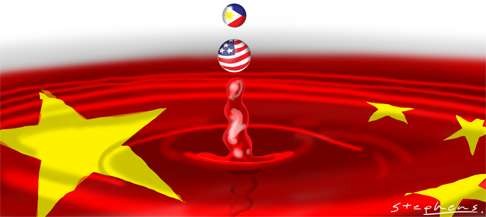
What will guide China’s response to the South China Sea tribunal ruling?
M. Taylor Fravel says Beijing is likely to study the specifics of the Permanent Court of Arbitration decision and carefully watch the reactions of others, including the US, before deciding how it should act
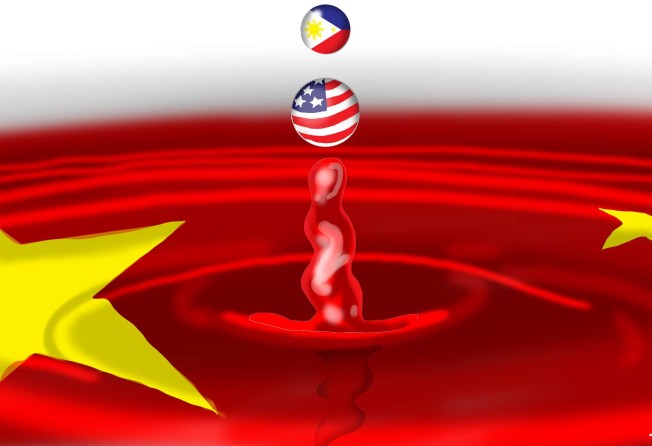

How Beijing will respond to any adverse ruling animates conversations in Washington, DC and capitals around Asia. The mainstream view is that China is likely to undertake some significant action, to demonstrate that it rejects the tribunal’s decision as well as to punish the Philippines and deter other states from pursuing similar cases. The two most discussed actions include initiating land reclamation at Scarborough Shoal or declaring an air defence identification zone over the South China Sea.
Yet, how China will respond is probably the product of more complex calculations in Beijing.
As Paul Gewirtz has recently noted, the tribunal itself will not resolve all the issues at stake in the South China Sea disputes over sovereignty and maritime jurisdiction. First, it cannot rule on the most fundamental issue – the sovereignty over the islands, rocks and reefs that make up the contested Spratly Islands. As the Law of the Sea is an international treaty that created a regime for governing the oceans, the tribunal can only consider questions relating to the interpretation of the treaty and the zones of maritime jurisdiction it created. Because the treaty specifically omits territorial disputes, the tribunal lacks jurisdiction to adjudicate on the claims between China and the Philippines over the sovereignty of the islands.
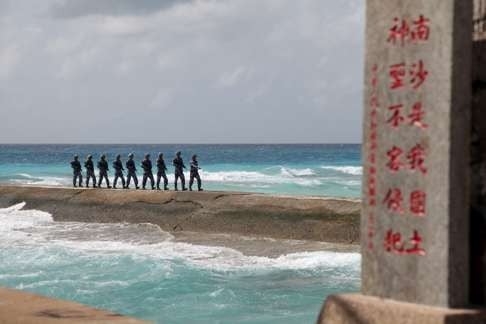
Second, the tribunal’s award will avoid any question of maritime delimitation or boundaries. The reason is procedural: under Article 298, the treaty allows states to exclude maritime boundary delimitations from the convention’s compulsory dispute resolution. Given that China issued such a reservation in 2006, the tribunal cannot consider any question of possible maritime delimitation.
Taken together, the tribunal cannot determine who owns what land features in the South China Sea, or where maritime boundaries should be drawn. Instead, it will focus on how to interpret the convention in light of the facts pertaining to the case.
Given these limits, the first factor that will shape China’s response is the content of the award. The Philippines asked the tribunal to rule on 15 unique submissions. As a result, the content of the award is likely to be mixed and complex, perhaps without definitive answers on some issues.
The Philippine submissions cover a range of issues, including the maritime entitlements of specific land features in the Spratly Islands currently occupied by China, fishing around Scarborough Shoal, and, above all, the legality of China’s infamous “nine-dash line” and any possible claims to historic rights that China may claim within the line.
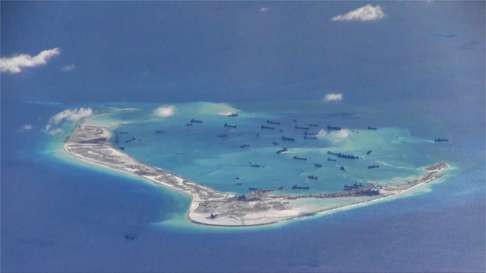
In October 2015, the tribunal ruled it had jurisdiction over seven of the 15 submissions and reserved the determination of jurisdiction of another seven to the merit phase (and asked for clarification of the last claim). Moreover, in the seven submissions where the tribunal determined it had jurisdiction, it conditioned that in two instances based on the absence of any dispute over maritime delimitation. If the largest land feature in the Spratlys, Itu Aba, is deemed to be an island that can generate a 200 nautical mile exclusive economic zone and continental shelf, then a possible maritime delimitation dispute would exist over Mischief Reef, Second Thomas Shoal, Subi Reef and Mckennan Reef, and prevent the tribunal from ruling on these submissions.
As a result, the tribunal will produce 15 distinct decisions. The award itself is likely to be lengthy and detailed. The tribunal will need to explain its legal reasoning and understanding of the facts for each submission.
The complexity of the award, and the possibility for a mixed decision, means China would face less pressure to react strongly with actions on the water
The complexity of the award, and the possibility for a mixed decision that combines elements favourable and unfavourable to the Philippines, means China would face less pressure to react strongly with actions on the water. For example, the tribunal could find China has no basis for “historic rights” within the nine-dash line while at the same time not providing a definitive definition of the line. Because China has not officially defined the line, such a ruling may not warrant a strong Chinese reaction.
The second factor shaping China’s response is how other states will respond. Under the Law of the Sea treaty, the judgment of arbitral proceedings is binding on the parties. This holds even if one party has chosen not to participate. At the same time, it is not enforceable.
Thus, the Philippines and other interested states such as the US will be faced with a decision on whether to try to compel China to accept the award. On the one hand, they could simply use the tribunal’s interpretation of the treaty to determine how they formulate their own claims or actions in the South China Sea. For example, if the tribunal rules that certain land features are not entitled to a territorial sea, the US may conduct a freedom of navigation operation within 12 nautical miles of such features. On the other hand, they could take actions in disputed waters subject to the arbitration to uphold favourable elements of the award, which in essence would amount to enforcement. The Philippines, for example, could decide to resume fishing activities inside Scarborough Shoal and request an American escort.
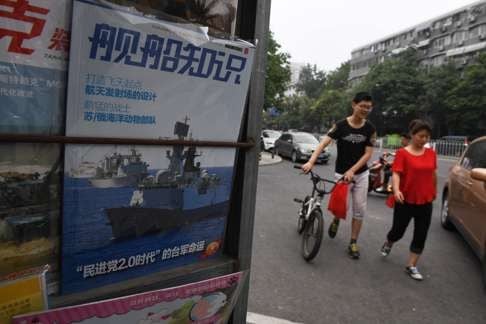
The steady drumbeat of China’s public diplomacy rejecting the tribunal reflects its hope that other states will not seek to compel China to accept any adverse findings. Therefore, China is most likely to calibrate its actions not only in light of the content of the award but also in response to efforts by other states to compel it to accept the findings.
Earlier this week, Dai Bingguo ( 戴秉國 ), China’s point man for foreign affairs under Hu Jintao (胡錦濤), made this explicit. During a conference in Washington, DC, he said “no country should implement the award in any form, much less force China into implementation”. The key implication here is that China will take firm action. China is likely to focus on how the Philippines responds and whether new president Rodrigo Duterte engages China diplomatically. For its part, China should not put any preconditions on the initiation of negotiations, such as requiring Manila to renounce the tribunal’s award.
At a minimum, the US will provide rhetorical support for the award. Arbitration is a clear example of peaceful dispute resolution, which plays a key role in US policy towards South China Sea disputes. But a mixed and complicated award means all states with an interest in supporting the outcome will need to study it in detail before determining how to proceed.
A third and final factor shaping China’s response is the regional diplomatic calendar. The Asean Regional Forum will be held later this month, while the East Asia Summit is in early September and the Asia-Pacific Economic Cooperation meeting in November. Land reclamation at Scarborough Shoal or establishment of an air defence identification zone in the South China Sea would guarantee that the disputes dominate regional discussions and likely increase security cooperation between the US and other claimants, an outcome China very much wants to avoid.
How China will actually respond to the tribunal’s award, of course, is uncertain. Apart from continued public diplomatic efforts to delegitimise the tribunal, whether China takes bold action on the waters of the South China Sea is likely to depend on the content of the award and how other stakeholders respond themselves, especially the Philippines and the US.
M. Taylor Fravel is associate professor of political science and a member of the security studies programme at MIT